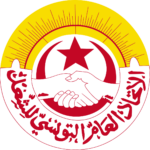 Tunisia was heralded as the beacon of democracy in the Arab world, yet it was never offered the financial and diplomatic support that other young democracies have enjoyed, argues Sarah E. Yerkes, a Senior Fellow in the Middle East Program at the Carnegie Endowment for International Peace.
Tunisia was heralded as the beacon of democracy in the Arab world, yet it was never offered the financial and diplomatic support that other young democracies have enjoyed, argues Sarah E. Yerkes, a Senior Fellow in the Middle East Program at the Carnegie Endowment for International Peace.
Instead, Tunisia’s growing economic crisis and deteriorating political situation were drowned out by the myriad conflicts around the Middle East and North Africa, she writes for Foreign Affairs:
While a Tunisian Marshall Plan may not have saved the country’s transition, greater financial support could have helped Tunisians weather the painful side effects of the economic reforms needed to create long-term sustainable growth. Today, Tunisian civil society actors and political opposition figures need both rhetorical and financial support from the international community for their efforts to drag Tunisia back to the democratic path. RTWT
What should the US EU do to help restore democracy in #Tunisia?
Sarah Yerkes, Senior fellow in Carnegie’s ME Program, where her research focuses on Tunisia’s political, economic, and security developments as well as state-society relations in the MENA.https://t.co/I3haH9tcms pic.twitter.com/P75jkYF602
— Center for the Study of Islam & Democracy (@CSID_DC) May 26, 2022







